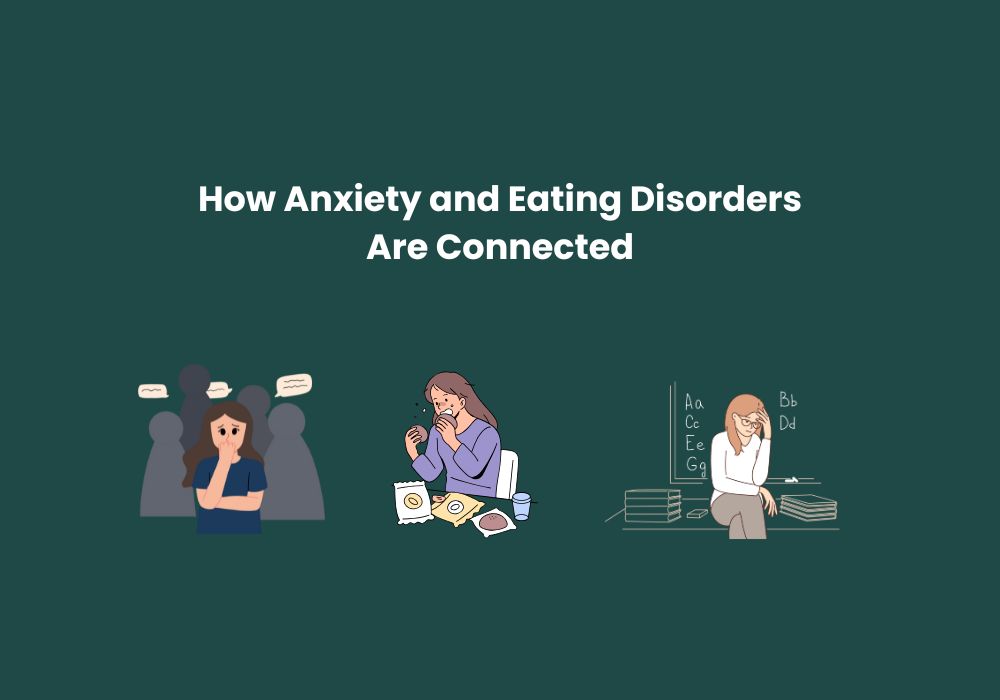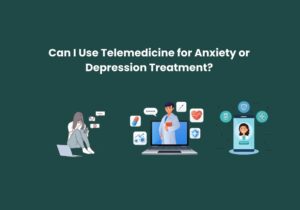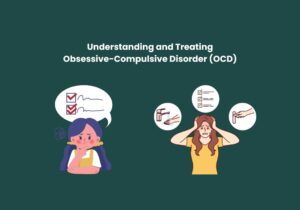Mental health problems are more common than ever. Anxiety and eating disorders are closely linked. Knowing this link helps people find the right care and support. It also helps loved ones understand what is happening.
In this blog, we explain how anxiety and eating disorders connect. We look at risk factors, common symptoms, and treatment options that work.
Before starting this topic, check out our previous blog post Effective Medications for Major Depressive Disorder (MDD) What to Expect. It will help explore the various Medications for Major Depressive Disorder (MDD).
Understanding Anxiety and Its Impact
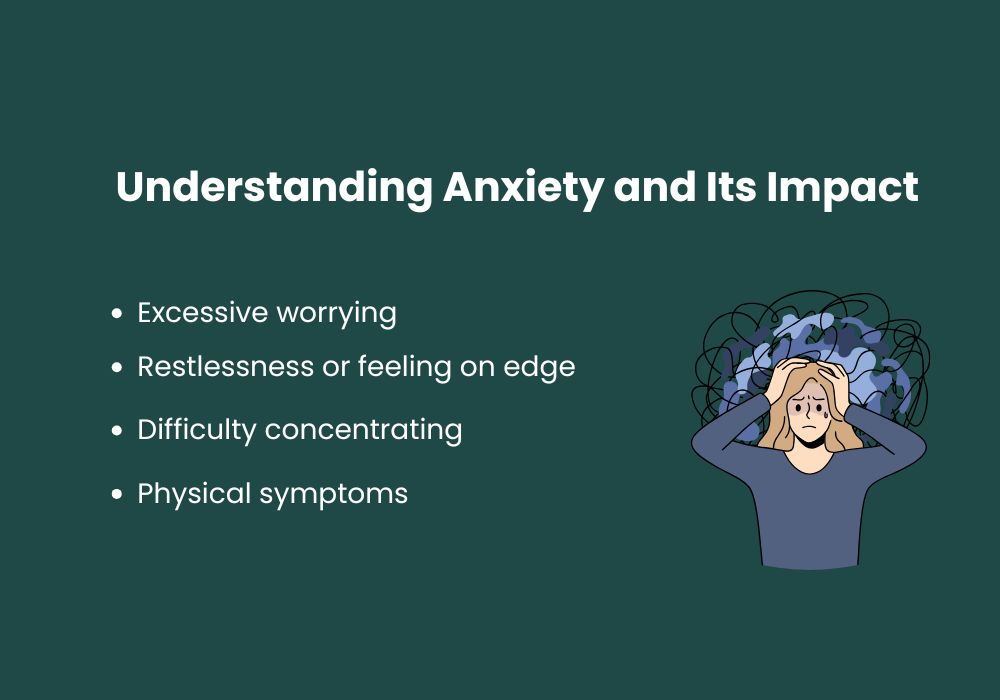
Anxiety is one of the most common mental health issues. It affects millions of people around the world. Anxiety causes worry, fear, and tension. These feelings can interfere with daily life.
Everyone feels anxious at some point. But ongoing anxiety can turn into a disorder. These include generalized anxiety disorder (GAD), social anxiety, panic disorder, and phobias.
Common symptoms of anxiety include:
- Excessive worrying
- Restlessness or feeling on edge
- Irritability
- Difficulty concentrating
- Physical symptoms like muscle tension, sweating, and palpitations
For individuals struggling with an anxiety disorder, these symptoms are more intense and last longer, disrupting their ability to function.
What Are Eating Disorders?
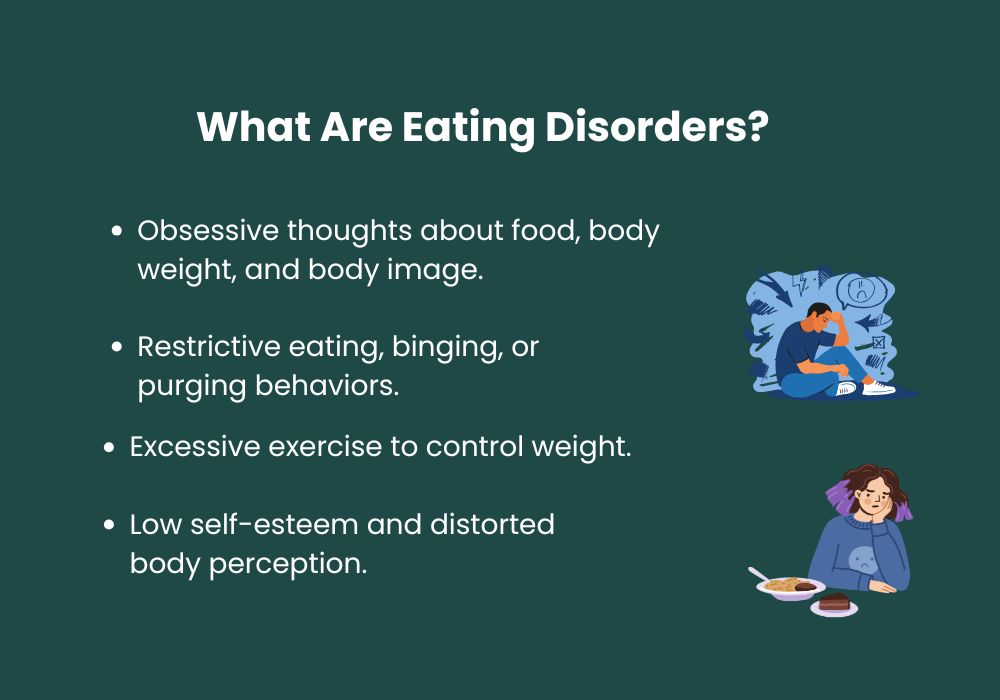
Eating disorders are severe mental health conditions that involve disordered eating behaviors and preoccupations with food, body image, and weight. Common types of eating disorders include anorexia nervosa, bulimia nervosa, and binge eating disorder.
Key symptoms of eating disorders include:
- Obsessive thoughts about food, body weight, and body image
- Restrictive eating, binging, or purging behaviors
- Excessive exercise to control weight
- Low self-esteem and distorted body perception
Eating disorders can lead to severe physical and psychological effects, including malnutrition, digestive problems, and heart issues.
The Connection Between Anxiety and Eating Disorders
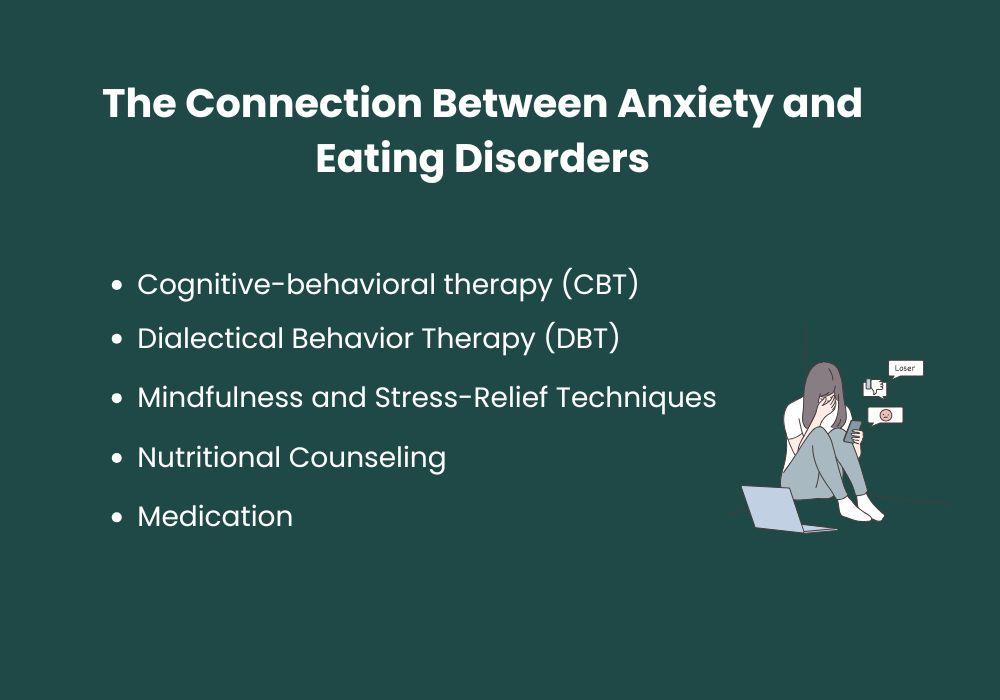
Research shows a strong link between anxiety and eating disorders. About 50–80% of people with an eating disorder also have an anxiety disorder. In many cases, anxiety comes first. It may start before any disordered eating habits appear. This link happens for several reasons:
1. Biological Vulnerabilities
Genetics affects both anxiety and eating disorders. People with a family history of one condition are more likely to get the other.
Brain chemicals also play a part. Low levels of serotonin and dopamine can raise the risk. These chemicals affect mood and impulse control.
2. Shared Psychological Factors
People with anxiety often try to be perfect. They are susceptible to criticism and feel a strong need for control. These traits are common in people with eating disorders, too.
Changing food habits can give them a brief sense of control. It can help them feel less overwhelmed by anxiety, at least for a while.
3. Body Image Concerns and Social Anxiety
For some people, worries about body image cause social anxiety. They may do certain things to feel “in control” of how they look.
This need for control can turn into unhealthy eating habits. They may believe a particular body shape will make social situations less stressful.
4. Co-Existing Emotional Regulation Issues
Anxiety and eating disorders often come with poor emotional control. People may restrict food, binge, or purge to handle strong feelings. These feelings can include anxiety, guilt, and sadness.
This coping method can create a harmful cycle. Eating behaviors may ease anxiety for a short time. But over time, they can make emotional problems worse.
How Anxiety Manifests in Different Types of Eating Disorders
The impact of anxiety can vary depending on the type of eating disorder:
- Anorexia Nervosa: People with anorexia often feel intense anxiety about gaining weight or losing control over their body image. Anxiety fuels restrictive eating behaviors, which they believe will keep their anxieties at bay, but the behaviors ultimately heighten their isolation and stress.
- Bulimia Nervosa: Bulimia is characterized by cycles of binge eating followed by purging to rid the body of excess calories. Anxiety can contribute to binge episodes, which are then followed by guilt and shame, leading to purging as a form of relief. This repetitive cycle is difficult to break, and anxiety remains both a trigger and a consequence of these behaviors.
- Binge Eating Disorder: People with binge eating disorder often use food as a way to cope with anxiety, stress, or other emotional pain. Unlike bulimia, binge eating is not followed by purging, which can lead to obesity and related health complications. The stress of weight gain and physical consequences can further exacerbate anxiety.
Recognizing the Symptoms of Co-Occurring Anxiety and Eating Disorders
When anxiety and eating disorders co-exist, individuals may display a range of symptoms, such as:
- Avoidance of social situations due to body image concerns or anxiety
- Heightened self-criticism and perfectionism
- Excessive fear of weight gain or loss of control over food intake
- Isolation and avoidance of meals with others
- Physical symptoms like fatigue, digestive issues, and heart palpitations
- Fluctuations in mood and impulsive behaviors, especially around eating
If you or a loved one experiences these symptoms, it’s essential to seek help from a mental health professional specializing in these conditions.
Treatment Options for Anxiety and Eating Disorders
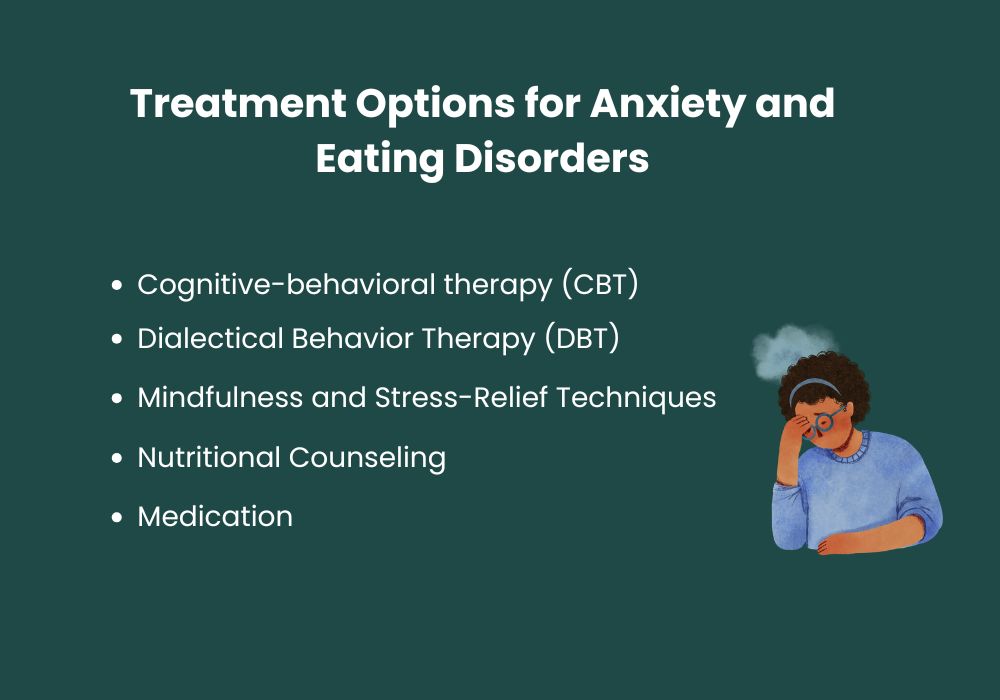
While treating co-occurring anxiety and eating disorders is challenging, several effective approaches can address both conditions simultaneously:
1. Cognitive-behavioral therapy (CBT)
CBT is a highly effective treatment for both anxiety and eating disorders. It helps people spot negative thoughts and learn ways to manage anxiety. They can do this without turning to unhealthy eating behaviors. Exposure therapy is a type of CBT. It can help with social anxiety by slowly facing stressful situations in a safe setting.
2. Dialectical Behavior Therapy (DBT)
DBT works well for people with binge eating disorder and bulimia. It focuses on controlling emotions and handling stress. DBT also teaches mindfulness. This helps people notice their feelings and actions. It gives them tools to respond in healthier ways.
3. Medication
Sometimes, doctors may prescribe medications called SSRIs to help with anxiety. These medicines can lower anxiety and depression. This may also help reduce unhealthy eating behaviors. Medication should always be prescribed and monitored by a qualified psychiatrist.
4. Nutritional Counseling
Working with a registered dietitian is important for people with eating disorders. Nutrition counseling helps them create a healthy, balanced eating plan. This can lower food-related anxiety and support both physical and mental health.
5. Mindfulness and Stress-Relief Techniques
Mindfulness practices like meditation, yoga, and breathing exercises can be highly beneficial for managing anxiety and preventing eating disorder relapses. These practices promote relaxation and increase self-awareness, helping individuals to identify and cope with anxiety triggers in healthy ways.
6. Support Groups and Therapy Communities
Group therapy or support groups can give individuals a sense of community and belonging. Engaging with others who understand their struggles offers emotional support and shared coping strategies that help reduce feelings of isolation and stigma.
Seeking Help and Building a Supportive Environment
If you or someone you know struggles with anxiety and an eating disorder, professional help can make a big difference. At Peniel Psychiatry, we provide treatments for both conditions. Our team understands the challenges of having anxiety and an eating disorder at the same time. We offer caring, evidence-based care to help people regain control and improve their mental health.
Final Thoughts
The connection between anxiety and eating disorders is complex. Biological, psychological, and social factors all play a role. Spotting the symptoms early and seeking help are necessary steps toward recovery. With the proper treatment, support, and self-care, people can manage both conditions. This can lead to a healthier and more balanced life. If you or a loved one is struggling, know that help is available. Recovery is possible.

